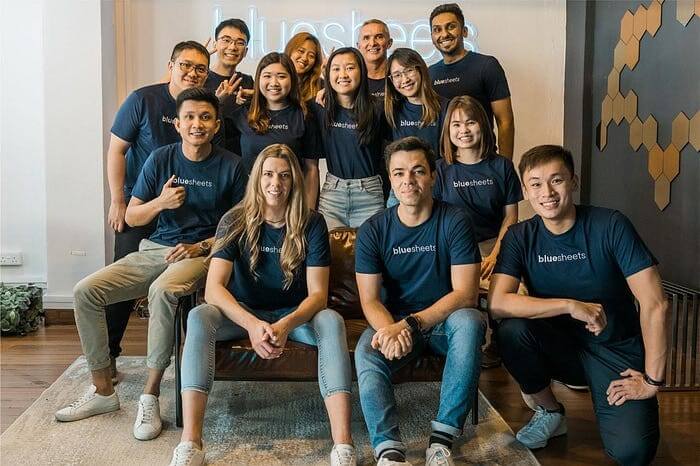
BLOG
ask a VC: Monk’s Hill Ventures

share:
We’re speaking to Singapore’s leading VC funds to find out about their thoughts on the current state of the Southeast Asian startup and venture ecosystem, and what they currently are looking for in companies.
This week we’re speaking to Michele Daoud from Monk’s Hill Ventures, a leading Southeast Asian early-stage tech venture capital firm.
how is the Southeast Asian tech startup and VC ecosystem looking in 2019?
The ecosystem has been maturing over the last few years. We now have all the key stakeholders in place – from community builders, to investors and mentors.
Many of the low-hanging fruits have been addressed, like e-commerce and ride hailing. Tech entrepreneurs are now tackling arguably more fundamental and challenging issues like education, finance, and healthcare, which is exciting.
We expect to continue to see a wave of returnees (‘SEA turtles’) fuel the regional ecosystem by bringing back their tech and entrepreneurial expertise to the region, but also increasingly more second-time entrepreneurs and tech executives with experience in the region venturing to build their own companies. It’s an exciting time to be working and investing in tech in Southeast Asia.
the number of VCs seems to grow each year. Will this continue and do you see more large US funds setting up shop in Singapore?
I do see this continuing, which is a good thing – competition is good and keeps us working hard, continually refining our value proposition to founders.
Global funds have an increasingly large presence in the region. We see them first consider investments from their home base, and eventually put someone on the ground, which is good validation for the market and is helping build and shape the story of tech in Southeast Asia.
More importantly, having new funds being set up in Southeast Asia gives regional founders alternative sources of capital to choose from, with their own strengths and weaknesses. It allows founders to choose the funds and partners that are the best fit for them, and support them in building the best possible companies based in Southeast Asia.
This is a virtuous cycle which in turn fuels the ecosystem, brings new investors, and helps enable great regional companies. We are all winners when the ecosystem flourishes.
has the series B crunch been resolved?
Yes, there have been several series B funds getting set up in the last few years, including several that have done follow-on investments into our portfolio companies. Overseas funds have also come in to bridge the gap.
You’ll still find some entrepreneurs discussing a Series B crunch, and more generally entrepreneurs discussing the challenges of raising funds in different markets or at different stages. While fundraising is no easy task, not all companies should be receiving follow-on investments and the inability of certain founders to fundraise is part of the natural selection of the best companies, a “survival of the fittest” of some sort.
In 2019, if you’re a strong founder with a sound business model, you should have no issues raising funds.
how are the region’s tech unicorns (the Grabs, the GoJeks) impacting the ecosystem?
Well, these companies are an important piece of the ecosystem. They’ve been actively investing (see Grab Ventures, launched last year), which means additional funding options to entrepreneurs, and they also act as exit opportunities for many smaller startups. Their mere existence has done a lot to put Southeast Asia on the map.
They are also potential partners for startups looking to leverage them for distribution or other. While the Grabs and the GoJeks seem to be offering a large portfolio of products and services, those products and services are oftentimes offered by partners rather than directly by the company.
They are also potential competitors and entrepreneurs should take them into account before starting a business. Understanding their core priorities and competitive advantage is key, and there are areas where a new startup would be at a clear disadvantage.
That said, not all their lines of business are priorities and the “unicorns” tend to focus on their core, so entrepreneurs with more focus and executional discipline can outcompete the Grabs and GoJeks in many of their business lines.
people talk about Indonesia due to its market size, but what other countries in Southeast Asia are producing amazing startups?
Indonesia and Singapore are no-brainers. I think Vietnam has some incredible stories to tell as well. The underlying growth of the economy has been spectacular and while GDP/capita might still be low, the population has proven eager to try new technologies and adopt new products.
Moreover you have a very strong wave of returnees, particularly given the large Vietnamese population in the US. It’s a great addition to the already tech-savvy execution that’s available in country.
Some startups to watch from Vietnam: healthtech startup Jio Health, and Ai pronunciation coach, ELSA (disclaimer: we are investors in both!).
ELSA is a great example to highlight. The founder of ELSA is Vietnamese but currently lives in the United States. She came up with the idea of a pronunciation app after moving to the US for her grad school (MBA and Master’s in Education at Stanford) where she realized that despite her strength in English grammar and vocabulary, she struggled to be understood due to her accent. The company has had tremendous organic growth which is good validation that it’s addressing a core and common painpoint.
what kind of startups are catching your eye? how has that changed in the last 12 months?
I’ve noticed that the companies we come across generally fall within 3 buckets:
- copycats, who are replicating in their home market the successes that others have had abroad,
- companies solving problems that are specific to our region, and
- companies tackling global problems from Singapore or Southeast Asia.
The dealflow has gradually been shifting from (1) to (2), with most of the companies currently falling in that second bucket. These companies are emerging to solve regional specific problems, and it’s very exciting. While (3) is still the minority, those are also interesting companies to watch.
any predictions for the SEA ecosystem over the next two years?
I’ve learned better than to make predictions about the tech space! Our approach is to adopt a learner’s mindset to investing. I have found that publicly making predictions leads to psychological bias, with a potential inclination to then prove those predictions right, consciously or unconsciously. I prefer to stay open and unbiased, noticing new patterns as they emerge.
tips for founders pitching to you?
- Meet me early, not when you’re a couple of months away from running out of money. It’s better to build a relationship and get to know each other over time, so we can understand how we would work with each other.
- Don’t be too ‘sales-y’. Transparency is good. Don’t be afraid that what we’ll uncover might push us away. This sets the tone of our relationship going forward, so make sure you’re candid and transparent, and we’ll do the same.
- Do your research and understand what kind of VC we are, what we invest in, what we care about. It shows us that you’ve put in the work and genuinely want to work with us, but also ensures you don’t waste your time in case you don’t fit within our investment strategy.
Are you looking to raise funds for your startup in Southeast Asia? Our team of lawyers are market experts in tech and VC. We’ve gained this experience the only way that works – by doing deals (hundreds of them) and by immersing ourselves in the tech ecosystem.
If you need help with your term sheet or have questions about raising your round, book a time to speak to one of our lawyers.
explore our other blog posts

